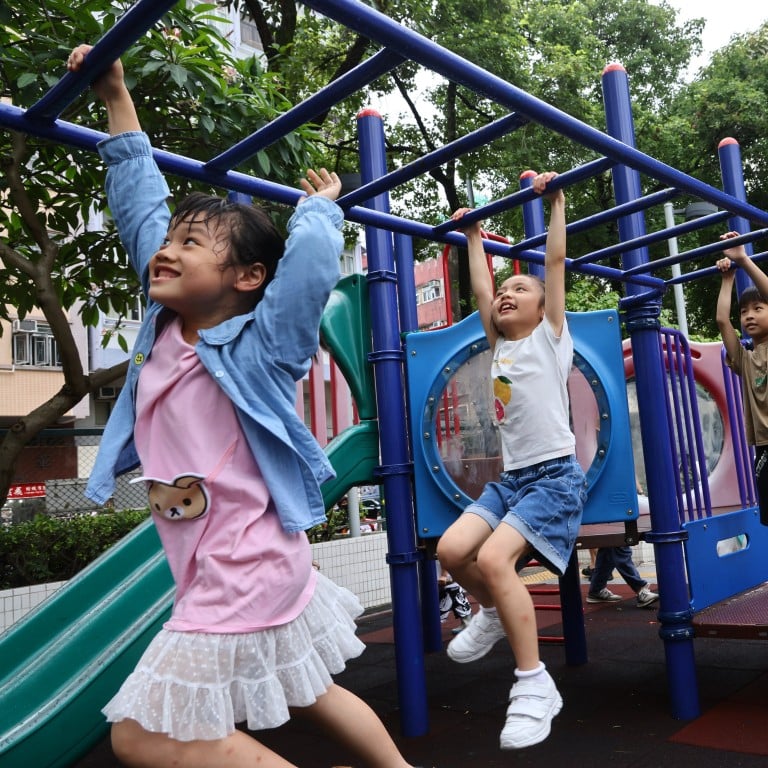
Hong Kong lawmakers urge school placement help after poll shows 60% of expats bring children
- 368 of 597 respondents say they had at least one child studying in the city, while one in five say they are temporarily unemployed
More than 60 per cent of people coming to Hong Kong under various talent schemes brought their children with them, according to a survey released on Thursday, prompting lawmakers to call for more support in securing school placements.
The survey also found that one in five respondents were temporarily unemployed, according to Hong Kong Top Talent Services Association and the Hong Kong Federation of Education Workers who conducted the study last month.
Among the 597 respondents, 368 said they had at least one child studying in Hong Kong. Families with one child studying in the city made up 31.16 per cent, while those with two accounted for 26.13 per cent. Families with three or more made up 4.36 per cent.
Lawmaker Jesse Shang Hailong, who chairs the association, said the poll results highlighted the city’s diverse education system as a major draw for top talent, but called for more support to help their children secure school places.
“I have visited a through-train school in Tai Wai, after the Top Talent Pass Scheme, the waiting list for that school has already exceeded 10,000 students,” Shang said. “This indicates a major problem with our quality education supply.”
Pupils in through-train schools have direct access to an affiliated secondary institution.
Wei Cheng, a 38-year-old exporter who came to Hong Kong from the Chinese province of Jiangsu under the Top Talent Pass Scheme, said his children’s education was the main reason he decided to come to the city.
“I really approve of the educational philosophy of schools here in Hong Kong, as every school has their own speciality and there are different types of curriculums that align with the rest of the world,” he said.
Wei, who has two children in primary school and one in kindergarten, said he initially faced some difficulties placing his children in schools, but they were eventually able to find spots for his children in another one.
The study polled people who came to Hong Kong through various talent schemes, with a majority of respondents coming under the Top Talent Pass Scheme at 71.5 per cent and the Quality Migrant Admission Scheme at 17.8 per cent.
Poll results coincided with authorities saying that they want to broaden the Top Talent Pass Scheme by including universities renowned in certain subjects, even if they fall outside the top 100 global rankings.

Launched in December 2022, the talent scheme requires applicants to have an annual income of at least HK$2.5 million (US$320,700) or hold a bachelor’s degree from a university listed in the top 100 of four designated world rankings over the last five years.
The survey also found that 21.6 per cent of the respondents were temporarily unemployed.
“We did not limit [the poll] to those who have received their visas for a long period of time, even if you just received your visas, you can still participate in this study.” Shang said, adding it was normal for new visa holders to be seeking work.
Among those with jobs, finance was the most popular sector with 22 per cent of the total.
Many of the respondents ranked housing as the largest expenditure for their families, followed by education. The poll also found that 86.4 per cent of the respondents were renting their homes, and 8.7 per cent bought their own homes.

